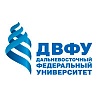Artyom Lukin: If Obama can embrace the Saudi monarch, why can't Putin greet the North Korean ruler?
In
Log in if you are already registered
Kim Jong-un is scheduled to visit Moscow this May as one of the Kremlin's numerous guests of honor for the 70th anniversary of the victory over Nazi Germany. This will be his first visit abroad since he succeeded his father Kim Jong-il as the ruler of the Democratic People's Republic of Korea in December 2011.
Kim Jong-un's trip to Moscow is one indication of the warming relationship between Russia and North Korea. The past year has seen a flurry of high-level exchanges between Moscow and Pyongyang. The two countries have concluded a number of agreements aimed at expanding their economic ties. To top it off, 2015 was designated official Year of Friendship between Russia and the DPRK. Russia-North Korea relations are now at their best since the collapse of the Soviet Union, when the two communist countries were considered allies.
The current renaissance of Russian-North Korean friendship is due to several reasons. Ostracized and penalized by the U.S.-led West over its actions in Ukraine, Vladimir Putin is seeking closer ties with the regimes that have the reputation of being anti-American. North Korea is clearly among them. Like North Korea, Russia is now a target of Western reprisals, which makes Moscow feel more empathy with Pyongyang. Furthermore, Moscow may probably want to use its increased support for North Korea as additional leverage in its dealings with the Western capitals, Tokyo and Seoul.
That said, I would argue that even without the Ukraine crisis, Russia should have invited Kim Jong-un and would have probably done so. After all, North Korea was liberated by the Soviet troops in the Second World War. It is a sovereign state that neighbors Russia, with the two countries having long-standing connections. True, the DPRK has been under the United Nations sanctions. And Russia has the legal obligation to enforce these sanctions -- which it does. However, the UN sanctions do not prohibit the head of state of North Korea from visiting foreign capitals.
Even though some of the horror stories told by defectors from the DPRK turn out to be concocted there is no denying that the North Korean regime is despotic, brutal and nasty. However, there are quite a few no less unpalatable regimes that are generally in good standing with the West as respectable international citizens. Think, for example, of some Gulf monarchies like Saudi Arabia and Qatar, the countries where people are jailed, publicly flogged, and can even face execution for expressing liberal views.
North Korea has breached international law to acquire atomic capability, but its primitive nukes are meant for deterrence -- they will only be used if the DPRK's very existence is directly threatened. The North Korean regime -- a quirky mix of Korean nationalism, the Kims' personality cults and Marxism -- has long been in the purely defensive mode. The DPRK's principal goal is to survive, not to pursue any kind of territorial or ideological expansion. On this account, again, the fundamentalist Arab theocracies seem much more dangerous, serving as sources of spiritual and material support for extremist Islamist groups who would gladly destroy Western society. North Korea might have been behind the hacker attack on Sony Pictures as retaliation for a movie mocking Kim Jong-un, but can this cyber mischief be compared to the Islamist massacre at Charlie Hebdo's offices in Paris as retribution for making fun of the Prophet?
North Korean bombastic propaganda may sound awful, but how about Saudi Arabia's officially approved school textbooks that call on youths to wage violent jihad? Yet Western leaders do not have qualms about appearing together with the rulers of Islamist regimes. Last January Barack Obama even cut short his trip to India to go in person to Riyadh to pay respects to the Saudi royal family after the death of King Abdullah. If so, would Vladimir Putin be any less morally justified when he meets with the North Korean autocrat?
Some hope for North Korea?
Unlike the Gulf theocracies, which seem set on promoting "pure Islam" and show little inclination to change their fundamentalist ways, there are indications that North Korea may be liberalizing, at least in the economic realm. Some change is obviously brewing inside the DPRK, including it incrementally becoming more open to the outside world. As one testimony to that, I have recently had a chance to interact with North Korean scholars who talked enthusiastically about their country's policy emphasis on special economic zones to attract foreign trade and investment.
The experience of dealing with Pyongyang shows that the more you pressure and penalize it, the more aggressive it becomes. Rather than trying to isolate North Korea, it may be just the right time to engage it as a recent report by Stanford has suggested.
Kim Jong-un's visit to Moscow, where he will be for the first time exposed to a big international gathering, may be one appropriate step to help North Korea overcome its siege mentality, reduce its feeling of insecurity and thus make the rest of the world a little bit more secure too.
Artyom Lukin is Associate Professor at the School of Regional and International Studies, Far Eastern Federal University, Vladivostok.




